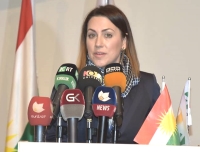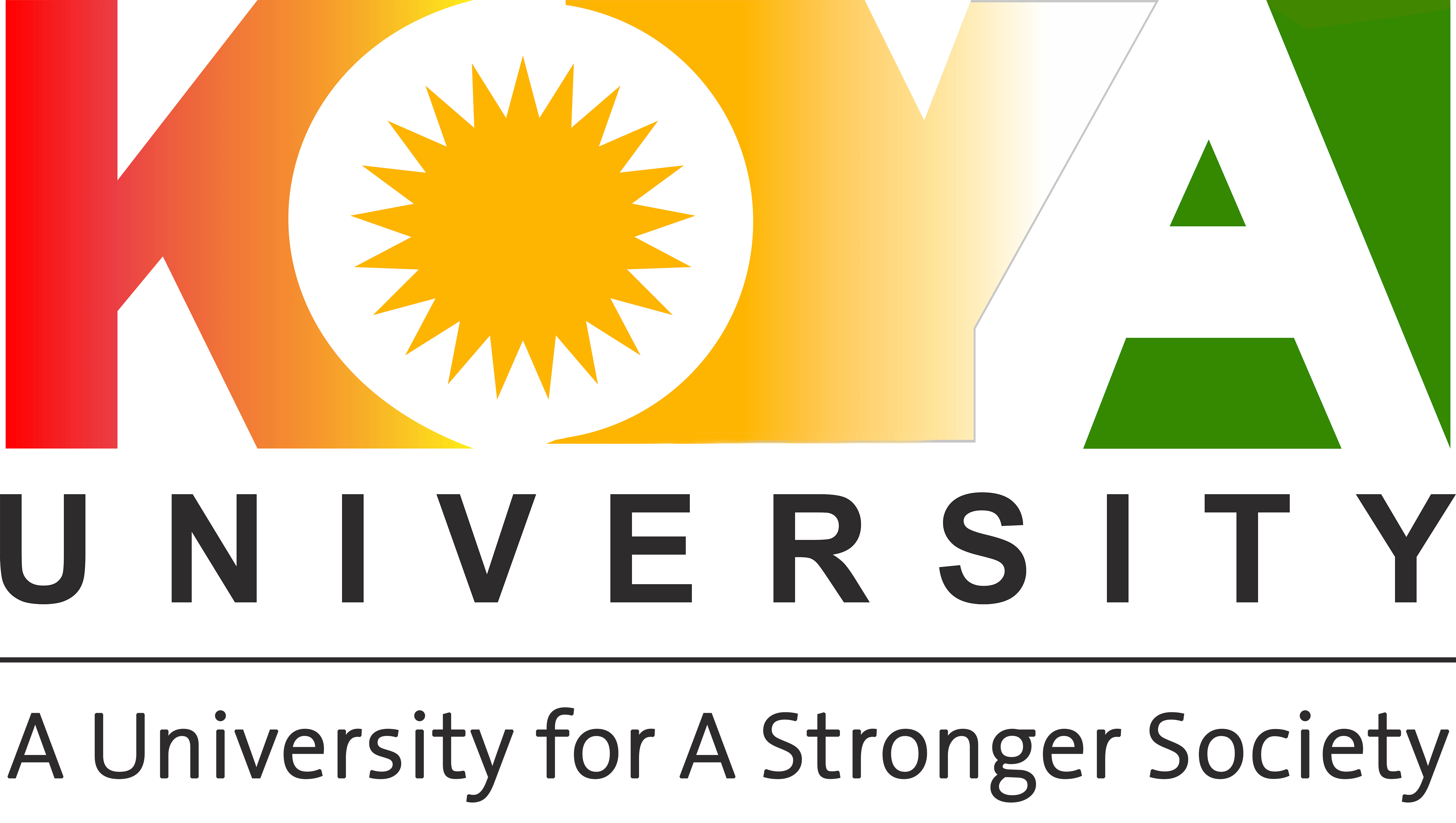On Sunday November 19th 2017, the trainees’ graduation ceremony of the first training program of the Mental Health and Psychological Support Service held at the Presidency Building of Koya University. The ceremony was held with the presence of the US General Consul to Erbil Ken Gross, the head of the SEED Foundation and the Council Member of Koya University. At the beginning, Ms. Frishta the head of the Center presented her welcome speech to the audience and after her, the US General Consul to Erbil Ken Gross gave his speech as follows:
“Ms. Sherri Talabani, President Dr. Wali Hamad, graduates of the Psychosocial Support Services Training Program, Honored Guests:
I am delighted to attend the graduation of the first group of students to complete the Center for Mental Health and Psychosocial Support Services program at Koya University. I was here in January when we launched this program to provide vital practitioners to help those most vulnerable to the atrocities committed by ISIS.
We have made tremendous advances in defeating ISIS since we first met in January. But our fight against ISIS is not complete. My government will continue its commitment to the Government of Iraq and the Kurdistan Regional Government to see ISIS destroyed. And today, all of us look to you to begin your important work, helping those whose wounds run far deeper than any visible scars.
The United States provided SEED with $1 million for its program to Strengthen Assistance for Returnees and Survivors of Sexual and Gender-Based Violence. Programs like this are vital. The United States provides stabilization assistance to communities liberated from ISIS to reestablish governance and return basic services to the people. We fund demining programs that allow government officials to move back into their offices, to get the power turned on, and to reopen schools and hospitals.
But ultimately, your jobs may be the most challenging and the most rewarding. People need to feel safe before they can return to their homes after traumatic events. That sense of security is not only a function of police, or lights, or a locked door. Women and girls who survived gender-based violence need new coping mechanisms to feel safe within their homes and their communities. They need to know who to turn to for help. They need to know, very simply, that they are not at fault and are not alone.
That will not be an easy task for you. But I am confident that with the training you received here at the Center for Mental Health and Psychosocial Support Services, you will succeed in helping those most in need.
The United States looks forward to continuing its strong partnerships in the Kurdistan Region with excellent organizations like SEED and future civic leaders like you.
Once again I offer my congratulations for your achievements and the powerful work you are about to undertake.”
Later, the Koya University President Dr. Wali M. Hamad presented his speech and Said:
First of all, it is my privilege to welcome you all to the first Graduation Ceremony of the Psychosocial Support Services Training Program. Especially, those participated in the training courses and have successfully completed the PSS Training Program.
Today, our university is proud to see the fruits of its cooperation with SEED, My thanks and appreciation to the employees of this organization, headed by Ms. Sherri Talabany.
From the beginning the program objective was to increase the level of skills of those providing mental health and psychosocial support services (MHPSS) to clients in the current crisis, including refugees, internally displaced people, host communities, and survivors of sexual and gender-based violence and other forms of trauma, by enhancing knowledge, building practical skills in MHPSS service delivery, and providing ongoing supervision. I think we have accomplished part of it after six months of your training courses.
Our primary objective in opening this center and participate in the hole project with SEED was for the training and qualification of local psychologists to be capable of rapidly intervening in the treatment of those who has been affected. Improve the psychological conditions of those affected, whether through the formation of a team specialized in psychological work to deal with the various psychological situations facing individuals and groups. In addition to working on the rehabilitation of the Human rights and salvation from the impotence of psychological, social and educational suffering, to come back safe and reassuring as well as to be an active element in society. We believe that our center can do that through the preparation of local elements for the work of counseling and psycho-social treatment within the community.
Establishing and sustaining such a center is very difficult in such circumstances as we are witnessing. But thanks to our cooperation with SEED, we can think of a promising future for this center. Through the expansion of its activities and work to convert it in the near future to a research center in the same field, helps researchers and specialists to carry out their qualitative research in the field of mental illness and mental health, in addition to staying as a development center for the capabilities of those who work in this field.
Finally, I want to tell you that the university is keen to keep this center the same quality as it is now, and we will have other programs for the center to benefit everyone.
Thank you all, and congratulations to your graduation.
After that Ms. Sherry Talabany the head of the SEED Foundation gave her speech in the ceremony as follows:
“Mr. Consul General, Dr. Walli Hamid, University President, the staff of the Center, SEED Staff, and students and organizations. Thank you so much for coming today.
I’m so thrilled to be back at the Center for Mental Health and Psychosocial Support Services at Koya University on behalf of SEED Foundation. We created the Center with the goal of building the capacity of mental health and psychosocial support workers to respond to the needs of our society in Kurdistan.
We are grateful to the United States Government for its support in establishing the Center, helping us to bring in expertise from across the world and within Kurdistan, to provide high quality education, training and supervision. You are helping us to realize our vision that the Center educate and train those that serve, become a place of sharing, growing, and collaborating.
You know well the problems we face in our society, as you are on the front lines every day with people in need, who have endured tremendous suffering violence, and loss.
The work you do as helping professionals is incredibly important -- for the people you are helping, and for Kurdistan’s future. We created this program to support you!
You chose this work because you wanted to help others, change their lives, and maybe even to change our society. You’re working every day to support the most vulnerable and those who have suffered so much, to heal and to recover, and to protect those in trouble and help them get on a better path. It is the most challenging work – physically, emotionally; and I know that sometimes it can be disappointing, depressing, and thankless.
So today I want to thank you – for all of the work you do, and for participating in this program which was not easy given your many demands, your clients, your busy lives, families.
Almost one year into our program, we are making serious progress.
This month, the University’s Undergraduate Clinical Psychology Program includes a new strengthened curriculum, new courses including a one year long course in trauma. We’re working together with the faculty to ensure that Koya University students have the most up to date academic program, as well as other initiatives to improve their clinical skills so that when they graduate, they are best equipped to serve the population in need. Finally, we’ve successfully developed and launched our PSS Training Program for helping professionals who are already working.
Today, we are here, thanks to all of you -- the teachers, organizers, the students, and with the support of the supervisors -- to celebrate the graduation of our first 24 students. We are so proud of all of you for completing the program, which took a lot of commitment, energy, and hard work. I hope – and believe – that you were challenged, and I know from the test results that you grew and learned.
Frishta and the team shared that you were fully engaged in this learning process, in discussions, in sharing your experiences, as painful as some of them were.
You became open to each other, and trusting of this program.
I’m pleased with the skills and knowledge you’ve gained in terms of sexual and gender based violence and communication skills; you deepened your understanding about trauma and how it affects us. I’m looking forward to hearing your feedback you provided today about the ways we can strengthen the program.
Today, with this certificate, you become ambassadors -- or the representatives -- of this program. I’m confident that you will represent us in the professional and committed way that you participated in the program. Each of us bring something unique to the table – different backgrounds, histories, religions, ages, ethnicities, gender, experiences, and we have so much to learn from each other. I hope that you continue to pursue this learning, and that we can support that.
It is our goal that the Center serves as a hub for learning for all those providing services in the crisis and we hope you – our first graduates – will work with us to find ways to foster the relationships and connections you’ve made and continue the learning process, sharing lessons learned.
With you, we’ve made an excellent start to creating a professional workforce to provide much needed services, so that we can all better address one of the most important challenges for Kurdistan today.
Congratulations and thank you!
At the end of the graduation ceremony, the certificates were distributed among the trainees who were 24 participants.
On the 31st of January 2017, the Deputy Prime Minister of Kurdistan Region, Ministry of Higher Education, Ministry of Health and the US Consul General, some members of parliament and the Mayor of Koya a number of Koya University staff attended the opening ceremony of the Mental Health and Psychological Support Service Center.
Click here to read news about it

